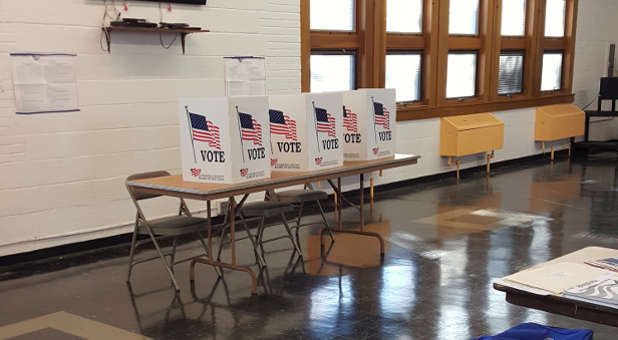America, We Have a Problem
Texas has a dramatic history when it comes to voting.
“Landslide Lyndon” Johnson, who went on to become America’s 36th president, benefited from blatant fraud to win his first Senate race in 1948. Following a runoff against a popular former governor, Johnson’s backers used recounts, corrections and phony vote-shifting to hand him an 87-vote primary victory.
Today, it isn’t so easy to simply fabricate thousands of votes. However, inaccurate voter registration rolls, brimming with the names of noncitizens as well as those who have moved away or died, open the way to error and fraud. That threatens the integrity of the vote in Texas and elsewhere.
A review of the presidential votes cast in Texas in 2008, 2012 and 2016 by the data analysis firm Votistics found a disturbing number of duplicate registrations and multiple votes. This means that inaccurate voter rolls are not harmless, forgivable mistakes.
According to Votistics, data provided by the Texas secretary of state indicate that 104,800 people appear to be registered more than once. That is, the list contains thousands of name/date of birth pairs. Of course, some cases could reflect unusual coincidences. But most are the same person. The State of Texas and county registrars have the information necessary to confirm duplicate registrations and remove the extra ones.
Votistics found that 2,159 of these “voting pairs” appeared to have cast ballots in the same election. The firm found another 272 cases of registrants who lacked fully matching middle names but also apparently voted more than once, as confirmed by data matching at various commercial sites that track personal information. While Votistics had no detailed information on these ballots, at least some of them were cast erroneously or fraudulently.
Moreover, 45,854 registrants appeared to have voted more than once in at least one general election according to the records provided by the Texas State Board of Elections. Texas also has a problem of the dead, or presumed dead, voting.
For instance, Votistics discovered that more than 3,000 of those who cast ballots apparently were older than the world’s oldest known person. Remarkable.
In 2016 alone, nearly 800 people above the age of 100 appear to have voted, most of them in person. Either the location of the Fountain of Youth is a few hundred miles off, or there’s a lot of voter impersonation going on. Regardless of whether these ballots were fraudulent, the secretary of state should lead a determined effort to fix election rolls across the state.
The problems are systemic. The American Civil Rights Union (ACRU) has been reviewing the role of inaccurate registration lists across the country. In Texas, 39 counties have more people registered than the number eligible to vote. One of the worst offenders is Starr County, with roughly 16 percent more registrants than qualified residents.
In 2014, the ACRU secured a consent decree with Terrell County, Texas, requiring officials to clean up their voter rolls by eliminating outdated and duplicate names. As a result, the analysis by Votistics showed the number of “surplus” registrants down markedly.
Now the ACRU has negotiated a comprehensive settlement with Starr County, where an election official admitted under oath that if he attended the funeral of someone he knew to be a registered voter and saw the dead body with his own eyes, he would not remove the person’s name from the rolls without an official death certificate. Is there any wonder why the rolls are in such a mess?
The problem of questionable voting is not limited to Texas. Pennsylvania has welcomed not just centenarians, but double-centenarians in the voting booth. Florida’s voter rolls have been swollen by the many noncitizens in the state. Estimates of the number of inaccurate registrations nationwide are in the millions.
Election offenses are not victimless crimes. For instance, limiting the ballot to citizens ensures that those empowered to decide the nation’s future have a substantial stake in the result. Every illegal vote cast, no matter how well intentioned, dilutes the votes of the rest of us.
Organized fraud is far worse. Although no candidate today likely matches the “success” of Lyndon Johnson, who would never have become president absent his 1948 theft, in close races, it doesn’t take many fake votes to change the outcome. Last fall, one of Virginia’s state legislative races ended in a tie, and that result determined who controlled the House of Delegates. The GOP held the seat when its candidate’s name was chosen by lot. Just one improper vote would have changed the work of the entire legislature.
The 2000 presidential election was decided by 537 Florida ballots. Moreover, the 2016 presidential election turned on close races in Michigan, Pennsylvania and Wisconsin. The contest could be even closer next time. Even without organized fraud, people who are not eligible to vote could end up deciding who governs America.
Keeping accurate voting lists is a local and state responsibility. Indeed, these governments have no more important responsibility than protecting the integrity of America’s democracy. When they fail to do their duty, groups like the ACRU must go to court to hold election officials accountable.
Texas has much important work to do, as do most other states. With the next election just two months away, they’d better get busy.
Ken Blackwell is a member of the policy board of the American Civil Rights Union.




























































